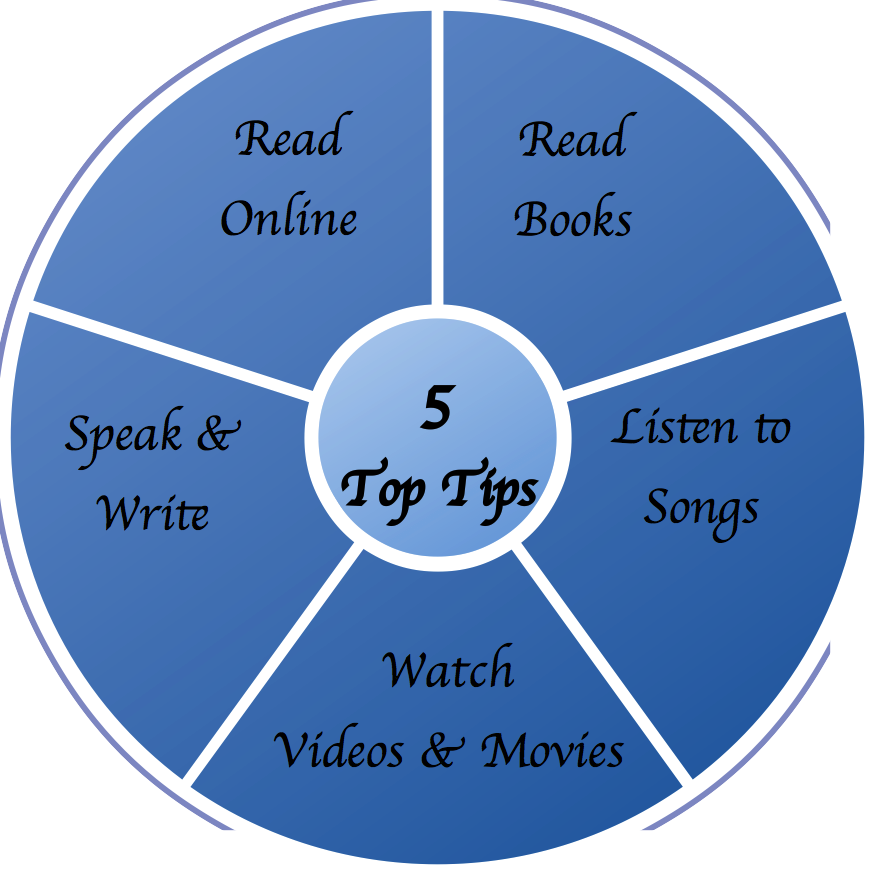5 Top Tips for Adult Language Learners – Part 2: Non-Beginners
 In Part 1, we present 3 Tips for those who are just starting to learn a new language.
In Part 1, we present 3 Tips for those who are just starting to learn a new language.
Part 2: Once you've settled into a comfortable routine for learning and practicing and have begun to acquire language basics, then the learning opportunities just continue to expand.
The 4 language skills - reading, comprehension, speaking, and writing - can all be tackled separately, but they support each other as well. Here are our top five(5) tips for non-beginners:
1. Start reading online articles
The plethora of foreign articles, magazines, or online newspapers available on the web allows you to chose your area of interest. For words you don't know you can use Google translation or a browser extension. It's an easy way to expand your vocabulary.
Or you could use sites like LingQ.com, which combines reading text with creating and practicing with flashcards. Increasing your vocabulary is key for both reading and comprehension.
2. Read Foreign Books with an English Translation alongside
Many foreign books are translated into English – or even vice versa. Knowing “'the story”, i.e. the context of the narrative, often makes the discovery of unknown words easy and fun.
I, for example found reading the original Spanish “Zorro” by Isabel Allende very enjoyable. As I described in my blog post, Zorro: 1 (big) Thing to Learn Spanish, you can experiment with which version you read first.
And if you want to practice new words that you pick up while reading - there are many sites that also let you create your own flashcards. (Read our review of Quizlet.com.)
3. Listen to foreign language songs and/or watch Youtube clips
As we pointed out in recent blog posts for popular French, German, Italian and Spanish songs, you can find the English translations of many songs and discover typical foreign language constructions in many of them. At the same time, by memorizing the lyrics, you'll also begin to “get” the melody of the language and anchor new words by repetition to music.
A quick web search will let you find many sites and apps that use music and songs for language learning, such as (for Spanish) jamtok.com; (for currently 7 languages) lyricstraining.com; or (for currently 13 languages) earwormslearning.com, and many others.
4. Listen to audios, watch foreign videos or movies
Clearly, both for comprehension and speaking you need to train your ear. Again, the Internet provides plenty of opportunities. Many language programs offer downloadable MP3 audios that you can listen to while driving, jogging, or washing dishes.
Even if you can't see original foreign movies (with or without English subtitles) in your local movie theater, you should be able to buy or download foreign movies on Netflix, Hulu, Vudu, or even on your local cable channels.
For example, we have found that foreign language “soaps” are a great way to acquire everyday expressions: When we first listened to the Italian soap “Un Posto al Sole” during our stay in Italy, we barely understood a word. After a month or so, we could distinguish words. Now, eight years later, back in the US, we still have fun in following the same characters on the RAI website.
5. Practice to Speak & Write
While reading and listening are important passive activities, you need to use your skills actively if you want to get good at writing and speaking. Once you feel comfortable with writing, you can join online communities on Facebook or those provided by language sites, such as busuu.com, babbel.com, and others.
You can also practice your speaking skills by reading aloud, recording your voice and comparing it to native speakers with many language programs. Voice recognition is gaining some ground, but can often be frustrating for many beginners.
Nothing beats having conversations with a native speaker. If you don't have a friend or acquaintance to practice your foreign language with, there are online tutor sites available such as lingolearn.com, or you can join foreign language video call sites such as languageforexchange.com, and many others.
And we agree with LingQ's Steve Kaufmann: “Nobody can teach you a language – you have to learn yourself – with help, of course.”
Thanks to the opportunities on the Internet, there is much help available and you can make learning a new language fun and interesting – and learn from anywhere!
